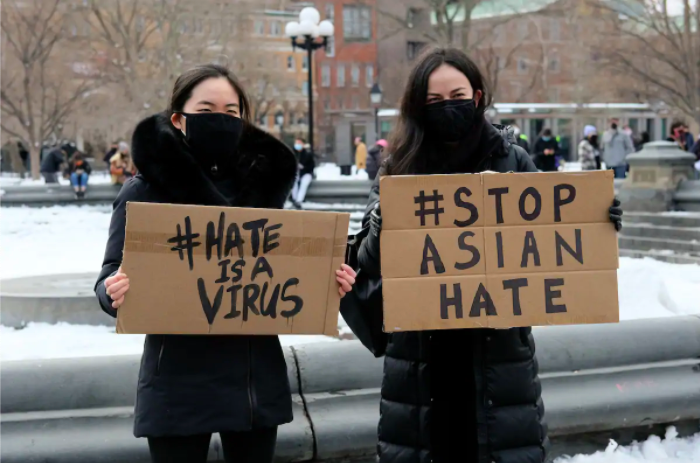‘I Want the World to Witness Our Pain’

by Naomi Bang ‘23
84-year-old Vicha Ratanapakdee was attacked on January 28 in San Francisco. Ratanapakdee, a Thailand native who lived in San Francisco, died of his injuries a few days later. Why was an innocent man attacked?
Ratanapakdee was walking through the neighborhood when a young man charged up from behind, using his full force to shove the elderly citizen to the ground. This is just one instance in a series of recent attacks targeted at elderly Asian Americans, just one instance that national news outlets failed to enlighten the public on.
Just the day after Ratanapakdee’s death, a 91-year-old man was shoved in Oakland’s Chinatown. The same assailant proceeded to knock down two other elderly victims on the same block, a 60-year-old man and a 55-year-old woman. All three were hospitalized with serious injuries. The incident is still being investigated to confirm if this was a hate-based crime. In San Jose, a 64-year-old grandmother was robbed in broad daylight in front of a Vietnamese market. The suspects stole her purse containing over $1000 in cash that she had withdrawn for the Lunar New Year.
“This is actually the first time I have seen this as a trend,” said San Jose City Councilmember Raul Peralez, referring to the uptick in crime this Lunar New Year season. Other councilmembers couldn’t recall the city’s crime rate increasing during past celebrations and wonder if this anomaly is related to the pandemic.
But attacks were not localized to the San Francisco Bay Area. Across the country, Filipino-American Noel Quintana was slashed from ear-to-ear with a boxcutter while riding a Manhattan-bound subway train. “It’s probably premeditated because the knife was already there, and he didn’t have any effort to get it,” said Quintana. “He entered strategically … I don’t want to think [that it’s] because I’m Asian.”
Though many of these recent attacks are clearly part of the rising movement of hate crimes based on the xenophobic beliefs stemming from the coronavirus pandemic, the news isn’t spotlighting them. “Racist rhetoric from, you know, the pandemic has targeted us as being, you know, the reason for coronavirus,” said actor Daniel Wu, who grew up in the Bay Area. “And so Asians across the board have been targeted by racial slurs, being attacked, being pushed around, being spat on.” Stop AAPI Hate, a California-based reporting center for hate against Asian Americans and Pacific Islanders, reported over 2,800 first-hand accounts of anti-Asian hate across the United States since the start of the pandemic.
The problem is, these events didn’t make it into mainstream media until weeks and months after they actually occurred. Even then, the topic struggled to gain traction amidst other headlines covering Trump’s impeachment and the ever-present Covid-19. Even my own Korean-American grandfather, who religiously watches the news and keeps up with current events, knew nothing about these instances. It’s telling that my grandparents are part of this targeted group of elderly Asian Americans, yet are unaware of the danger their demographic traits put them in.
Asian American celebrities and activists are using their platforms to prevent the spread of anti-Asian sentiments, but they can only reach certain audiences. Major news outlets are beginning to cover this topic and it’s important they make these stories a priority. More people need to be aware of the injustices arising against the Asian American community.
Amanda Nguyen, activist and founder of the non-profit civil rights group Rise, posted a viral video on social media to express her displeasure and put out a call for people to alert large news platforms. “I am going to be standing up for my community,” Nguyen told the People magazine. “I want the world to witness our pain.”